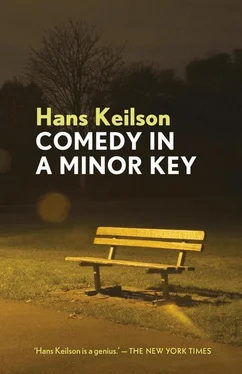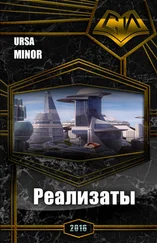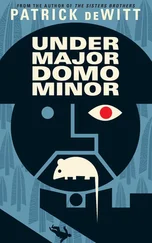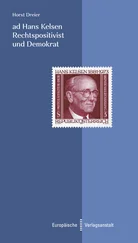Here in the room someone had died.
“There they are again…” Those had always been his words too. Sometimes, when they would still sit together over dinner in the back room — the only time in the day when he, as arranged, came downstairs — he had suddenly, in the middle of a bite, thrown back his head so that his large, hairy nostrils were visible under the sharply curved ridge of his nose and, with his mouth full, his hands planting the cutlery vertically on the table, he spoke those four words: “There they are again!” It was as if he had been waiting for them.
If the planes came later, when he was alone in his room, sometimes even in bed, he sat up straight and uttered this formula into the silent bedroom.
Of the three of them, he was always the first to hear the airplanes.
Wim didn’t let it bother him. “Well…,” he answered, more in question than in agreement. But not directly skeptical or denying either. Rather, in the tactful, uninterested way one leaves a matter undecided when it is theoretically possible at some point in time, even if not exactly this one. He certainly never interrupted his meal because of it.
“Yes it’s true,” Marie said, and hesitated before taking the next bite from the fork she was holding in place —“Yes, Nico’s right… can you hear it?” She speared her knife into the air.
“So early today,” Nico went on, and looked at the clock on the opposite wall. “Ten past seven.” His eyes shone because his ears had not betrayed him. The droning grew louder. Wim heard it too.
The first shots of the night — dull, thudding pops — were in curious contrast to the fine, almost musical sound of the airplanes. The windowpanes and doors shook and rattled, and the whole house, too lightly built, answered the explosions with a quick shudder. The beginning was always exciting, no matter how many times a person had already lived through it.
“They want to get back home early; pass the potatoes please, Marie,” Wim said. He was satisfied with this dry explanation and felt that he had rid the world of this not particularly interesting situation. “Eat! It’s getting cold!”
“No, Wim, no,” Nico responded, a little worked up, as though for him it was an existential question, and he let his head with its stuffed cheeks sink forward again until he was looking straight ahead. “No, there are reasons… they have a long flight ahead of them, you understand? Maybe Berlin or — yes, it must be Berlin, we are right in the flight path to Berlin here.” He spoke with conviction, as though he bore active responsibility for preparing the plans for this night of bombing.
“And how was it for you today, Nico?” Wim usually went on, breaking off then and there all questions of Berlin.
Nico answered in the same good-spirited tone: “Good, Wim, thank you; I am satisfied, the lodgings are good, I practiced my languages for a while, English and French”—or whatever he had done that day.
“How many chess games did you win?”
For he played chess, not especially well but with undiminished zeal.
When Nico had had a good day, he answered this obliquely mischievous question with a similar sort of answer, something like: “None, Wim, not even one. My opponent was too clever for me today…”
He always played himself. Hour after hour he sat at the little square table in his bedroom, the board with the pieces in front of him. The chair on the other side of the table was empty… e2-e4, e7-e5, g1-f3, and so on. He often sat for a long time with his head in his hand, deep in thought. About a chess problem? Or about ——?
The next day, he could barely wait for Marie to appear upstairs at five in the afternoon with the newspaper.
Hidden behind the curtains he had watched the newspaper delivery woman come quickly across the small front garden. He often left his room just as quickly — in slippers, of course, as they had agreed at the beginning — so that leaning on the banister upstairs, he could hear the newspaper rustle as it was stuffed through the mail slot and then hear it fall onto the stone floor. The seconds that followed next were often the richest in tension and suspense of his whole concealed life. Did they truly understand that, his hosts?
He stood on the last step and waited the short while until Marie appeared from her room, where she would sit, busy with her sewing, at this time of day. She picked up the paper, unfolded the page, read the headlines — lies! nothing but lies! but what could you do, you had to have a newspaper for the groceries — turned it over, read the personal announcements, the deaths, engagements, births — even in wartime people still fell in love and brought children into the world, of course — and then, still reading, walked up the stairs.
“Nico,” she called out, in a half-whisper that even an eavesdropper would never have been able to hear; only he could hear it; she knew he was standing and waiting upstairs —“Nico, you were right again, it says…” She was glad to give him these little pleasures.
But it often happened that she forgot, and Wim was the first to pick up the paper when he came home from the office. Or that she was out shopping in the city when it came.
Then Nico sat on the top step and fought a terrible battle with himself about whether he shouldn’t try it and carefully, carefully… he could take off his slippers too, creep downstairs in his socks; it would make a small bit of a difference, surely… or down the banister, the way he used to as a boy — he knew exactly on which steps the wood gave and creaked, the third and the fifth from the top, and the first and fourth after the turn in the stairway.
But in the end he didn’t dare to do it. Even if he was convinced that no one, no one in the world, could hear him… It was against their agreement, so he didn’t do it. It was almost too much for his strength. No one knew what battles raged inside him.
He quickly called to mind something else then, ordeals, the horrors that had certainly awaited him but which he had escaped — to other, new tortures here. “Ordeals and horrors are waiting everywhere,” he muttered to himself. “Everywhere.”
After a while he stood up and crept back to his bedroom. —
“Well, well,” the doctor said as the strikes of the antiaircraft guns thundered hard nearby, “those are some big ones.”
An unending row of night bombers came over the block of houses. It was as though they were flying through every room in the house at once.
He looked back and forth at this wife and husband, felt their suppressed fear of the death that came both quietly and loudly, and looked at the shadow play of the hanging lamp on the yellowish wall of the room.
Then he bent over the bed again and touched the body with his fingers. It was slowly growing cold.
Wim had clasped his hands behind his back, and he stared at the floor. We have to bury him, he thought, of course we do, you have to bury a dead man. But how—?
“A night like this in the bomb shelter, while the house collapses above you…” The doctor didn’t finish his sentence. Dead is dead, you can die anywhere. And live…?
Marie put her hand tenderly on the curved edge of the high footboard. For her it was like touching the dead man himself. She looked at him. Unshaven and worn out, he lay there with eyes closed. The hair on his head, falling tangled and uncombed onto his bony, low forehead, was black; the whiskers of a beard that had run rampant during his sickness glimmered red. The relaxed, half-open mouth and somewhat hanging chin gave the suffering face a more oval shape. How old he looked! All this together, and her memories of Nico, the man she had kept in hiding in her house, combined into a specific train of thought in Marie’s mind. Strange that it had never come to her while he was alive, not like this. She couldn’t help thinking of the Bible, even though she was not a church-minded type at all. She thought of the Old Testament, that he was a son of its people. Job could have looked just like that, she thought.
Читать дальше












